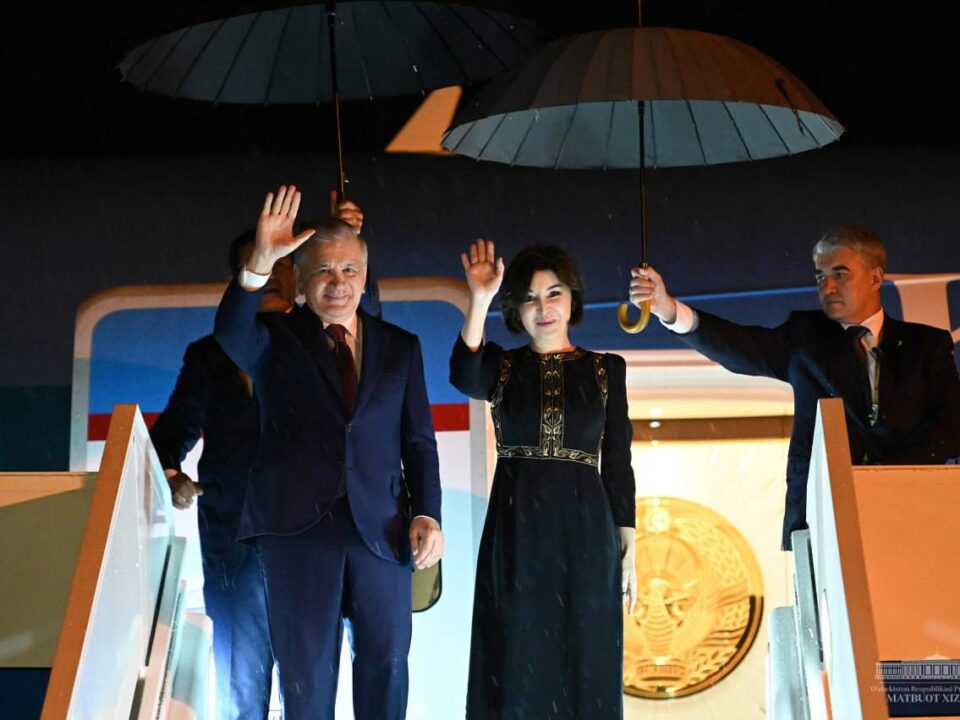For many centuries, on our ancient and fertile land, representatives of various ethnic groups, cultures and religions live in peace and harmony. Hospitality, kindness, generosity of the soul and genuine tolerance were always inherent in the Uzbek people and became the basis of his mentality.
The years of independence in Uzbekistan have opened a new stage in interethnic relations. One of the most important priorities of state policy in the country is the development of a culture of tolerance and humanism, the strengthening of civil understanding and harmony, the upbringing of the younger generation in the spirit of love and devotion to the Motherland. And all this was fully realized.
In Uzbekistan, there are more than 2,000 religious organizations belonging to 16 different faiths. 158 Christian organizations, 8 Jewish communities, 6 Bahai communities, the Hare Krishna community and the Buddhist temple operate in the Republic, 174 non-Islamic organizations in total.
A respectful attitude to the languages, customs and traditions of all nations and nationalities living in its territory is ensured in our country, conditions are created for their development. Training is provided in 7 languages: Uzbek, Karakalpak, Kyrgyz, Russian, Kazakh, Tajik, Turkmen. In 8 languages, magazines are published, in 10 languages – newspapers.
Believers of Uzbekistan freely celebrate all religious holidays. So, from year to year, Kurban-hait and Ramadan-hait are held by Muslims, Easter and Christmas among Christians, among Jews – Peysah, Purim and Hanukkah.
In addition, every year, with the full support of the republic’s leadership, believers make a pilgrimage to holy places. Over the past years, more than 70,000 Muslims have been given the opportunity to perform hajj to Saudi Arabia, hundreds of Christians and Jews have visited Russia, Greece and Israel. For comparison: before the declaration of independence, an average of 3-4 people left Uzbekistan every year.
To increase the efficiency of the activities of about 140 national cultural centers in May 2017, the Committee on Interethnic Relations and Friendly Relations with Foreign Countries was established under the Cabinet of Ministers of the Republic of Uzbekistan.
Within the framework of the fifth direction of the Strategy of Action adopted this year, “Ensuring Security, Interethnic Consent and Religious Tolerance, and Implementing a Weighed, Mutually Beneficial and Constructive Foreign Policy,” work is currently underway to draft the Concept of Priority Policy Directions in the Sphere of Interethnic Relations and the Concept of Public Policy in religious sphere.
For the purpose of comprehensive research of the rich cultural, scientific and spiritual heritage of our people, the wide popularization of this heritage among the world community, the profound revelation of the truly humanistic essence and the content of the religion of Islam, work has begun on the establishment of the Center for Islamic Civilization in Tashkent. There will be collected extensive information about the great scientists and theologians, outstanding poets and writers, artists and calligraphers who have made an invaluable contribution to the development of world culture and Muslim civilization.
Along with this, to preserve and study the rich heritage of Imam Bukhari, disseminate his teachings on enlightened Islam, the President of Uzbekistan Shavkat Mirziyoyev decided to establish an international research center in Samarkand, which will bear the name of this outstanding muhaddis and theologian. Speaking at the 72nd session of the UN General Assembly in September this year, the leader of our country asked to adopt a special resolution entitled “Enlightenment and Religious Tolerance”. The main goal is to provide universal access to education, eliminate illiteracy and ignorance.
The atmosphere of friendship and cohesion in Uzbekistan is an important factor of peace and stability, improving the efficiency of the reforms, and increasing the country’s prestige in the international arena. Thus, during his visit to the republic in October 2017, the Special Rapporteur of the UN Human Rights Council on the issue of freedom of religion or belief, Ahmed Shahid noted that in Uzbekistan great results have been achieved in this direction. The places of worship of great scientists and thinkers who have made a great contribution to Islamic science and enlightenment are well-equipped, the citizens of the country and its guests freely make pilgrimage to these shrines.
IA “Jahon”
(The material was prepared on the basis of information from the National Center for Human Rights of the Republic of Uzbekistan)


























